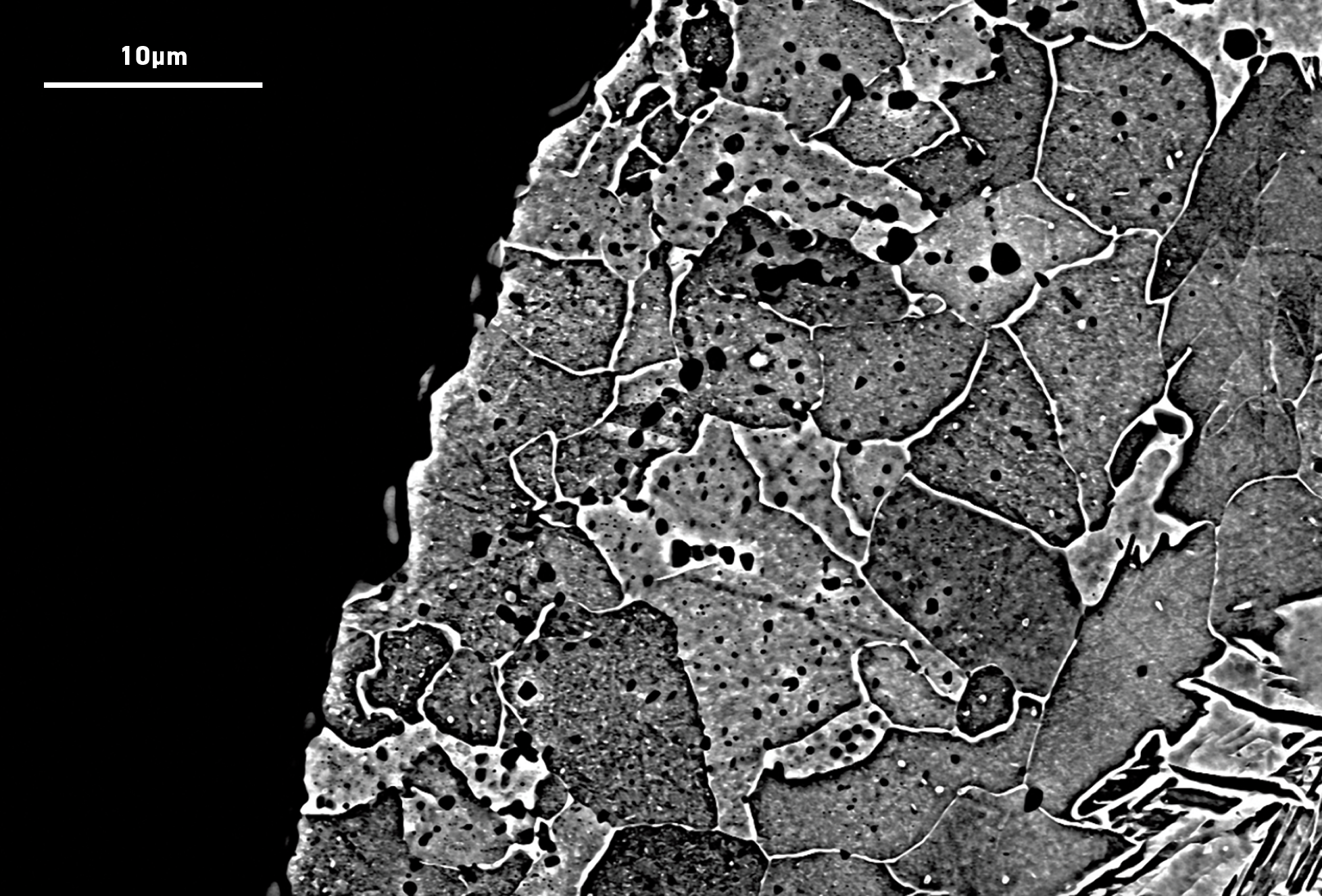An opportunity exists for innovation in complex industrial waste management and steel production. A combined solution could have a global impact on productivity and sustainability.
ARC Laureate Professor at UNSW Sydney, Veena Sahajwalla, has developed a process to use complex automotive waste as an input stream to modify and toughen steel. Titanium from paints, pigments and UV protection; silicon from glass, and nitrogen and carbon from plastics are transformed by using a precisely controlled, high-temperature procedure. They react to form titanium nitride and silicon nitride, ceramics that become chemically bonded to the surface of normal carbon steel. Carbides also form under these surface coatings. Both the nitrides and carbides increase hardness and improve resistance of the steel to corrosion and abrasion. The process is cost effective and can be modified to customise the surface to suit the intended application of the material.
Prof. Sahajwalla and her team use Microscopy Australia at UNSW to monitor and modify their processes to arrive at the most effective coatings.

Scanning electron micrograph showing the microstructure of the ultrahard ceramic layer derived from waste materials.

Left: Prof. Sahajwalla at the furnace. Right: The cross-sectional microstructure of the ultrahard surface layer exposed using a focused ion beam microscope.
She has already developed and commercialised ‘green steel’ technology, which uses old rubber tyres and waste plastics to fuel steel making. This innovation delivers zero-waste recycling because the rubber and plastics are completely consumed. It also significantly reduces the amount of coal and coke used to fuel the furnaces.
This work has been supported by ARC industrial Transformation Hub – Green Manufacturing.
Prof. Sahajwalla’s ‘green steel’ technology was named on the US Society for Manufacturing Engineers’ 2012 list of ‘innovations that could change the way we manufacture’.
Crushed cars stacked up for recycling
July 24, 2018